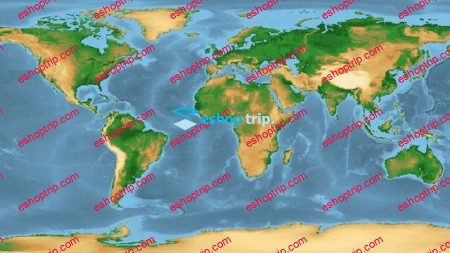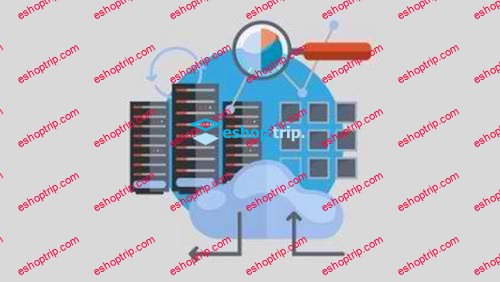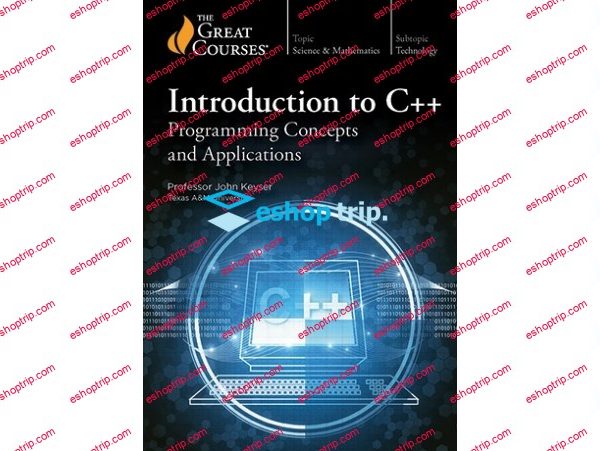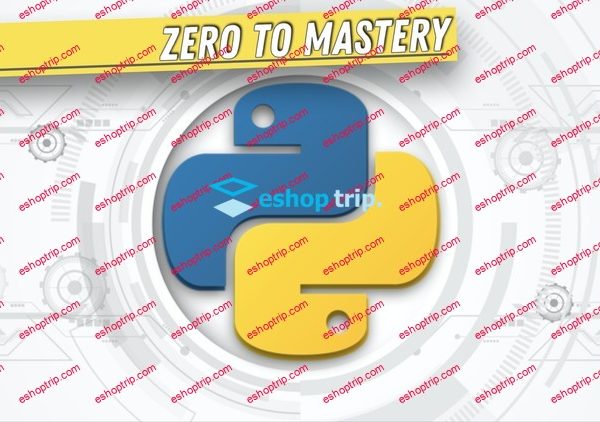Genre: eLearning | Language: English + .srt | Duration: 65 lectures (9 hour, 2 mins) | Size: 5.28 GB
The course will be demonstrated using a QGIS version of Windows PC.
What you’ll learn
Understand and implement basic concepts of Geographic Information Systems (GIS) and Remote Sensing
Fully understand the basics of Land use and Land Cover (LULC) Mapping and Change Detection in QGIS
Learn the most popular open-source GIS and Remote Sensing software tools (QGIS, Semi-automated classification (SCP) plugin, OTB toolbox)
Learn how to obtain satellite data, apply image preprocessing, create training and validation data in QGIS
Create your first GIS maps for your reports/presentations
Understand machine learning concepts and its application in GIS and Remote Sensing
Apply Machine Learning image classification mapping and change detection in SCP, OTB toolbox and QGIS
Fully understand and apply advanced methods in machine learning in GIS and Remote Sensing, such as random forest classification and object-based image analysis, in QGIS and Google Earth Ee
You’ll have a copy of the labs, step-by-step manuals and scripts used in the course
Requirements
A working computer
An interest in working with spatial data
Mac and Linux users will have to adapt the instructions to their operating systems.
Description
Do you need to design a GIS map or satellite-imagery based map for your project but you don’t know how to do this?
Have you heard about object-based image analysis and machine learning or maybe QGIS or Google Earth Ee but did not know where to start with such analyses?
Do you find GIS books & manuals too not practical and looking for a course that takes you by hand, teach you all the concepts, and get you started on a real-life GIS mapping project?
I’m very excited that you found my Practical Geospatial Masterclass course. This course provides you with all the necessary knowledge to start and advance with Geospatial analysis and includes more than 9 hours of video content, plenty of practical analysis, and able materials. After taking this course, you will be able to implement PRACTICAL, real-life spatial geospatial analysis and tasks, including land use and land cover mapping and change detection, machine learning for GIS, data, and maps creation, etc. in popular and FREE software tools.
This course is designed to equip you with the theoretical and practical knowledge of applied geospatial analysis, namely Remote Sensing and some Geographic Information Systems (GIS). By the end of the course, you will feel confident and completely understand the basics of Remote Sensing and GIS, learn Machine Learning applications in GIS / Remote Sensing technology and how to use Machine Learning algorithms for various geospatial tasks, such as land use and land cover mapping (classifications) and object-based image analysis (sntation, crop type mapping, etc). This course will also prepare you for using geospatial analysis with open source and free software tools.
In the course, you will be able to apply such Machine Learning algorithms as Random Forest, Support Vector Machines and Decision Trees (and others) for classification of satellite imagery. You will also learn how to and process satellite imagery, conduct supervised and unsupervised learning, implement accuracy assessment, apply object-based image analysis, and change detection. On top of that, you will practice geospatial analysis by completing an entire classification project by exploring the power of Machine Learning, cloud computing, and Big Data analysis using Google Erath Ee for any geographic area in the world.
In this course, I will teach you how to work with the popular open-source QGIS software and its great tools: Semi-Automated classification plugin and Orfeo (OTB) toolbox. You will also get introduced to cloud computing and Big Data analysis using Google Erath Ee for any geographic area in the world.
The course is ideal for professionals such as geographers, programmers, social scientists, geologists, and all other experts who need to use maps in their field and would like to learn more about Machine Learning in GIS. If you’re planning to undertake a task that requires to use a state of the art Machine Learning algorithms for creating, for instance, land cover and land use maps, this course will give you the confidence you need to understand and solve such geospatial problem.
One important part of the course is the practical exercises. You will be given some precise instructions, able practical materials, scripts, and datasets to create maps and conduct analysis based on Machine Learning algorithms using the QGIS software and Google Earth Ee.
Who this course is for:
Geographers, Programmers, geologists, biologists, social scientists, or everyone who deals with GIS maps in their field or would like to learn GIS and Remote Sensing











Reviews
There are no reviews yet.